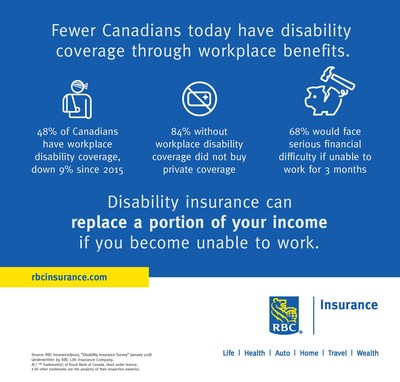It's Time for Women to Stop Dying Unnecessarily. It's #TimeToSeeRed.
Heart & Stroke™ launches national awareness campaign to close the deadly gap in women's heart and brain health
TORONTO, April 25, 2018 /CNW/ - Heart disease and stroke claim the life of a woman in Canada every 17 minutes. Sex and gender blinders have caused too many women's lives to be cut short, and today, Heart & Stroke is standing up for women's heart and brain health equity with the launch of #TimeToSeeRed. This powerful awareness campaign is aimed at galvanizing Canadians to push for and make changes, and at a faster pace than we have seen in the past.
"Unfortunately, it's hard to fix problems you can't see," said Yves Savoie, CEO, Heart & Stroke. "So, we're using #TimeToSeeRed to draw attention to the problem, so we can work together – public, health professionals, health systems and governments – to close the gap in women's health."
Despite recent progress, women's heart and brain health is still vastly misunderstood. These diseases remain the leading cause of premature death for women in Canada – yet women don't even know it, wrongly presuming other diseases are more dangerous.
Alarmingly, not only are women under-aware of risks of heart disease and stroke, but the healthcare system lacks the proper diagnostic tools and therapies to properly diagnose and treat them. Two-thirds of heart disease and stroke clinical research still focuses on men, making it difficult to draw conclusions about the effects or risks of the diagnostic tools and therapies on women.
"Historically heart disease and stroke were viewed as men's diseases," said Dr. Paula Harvey, Director, Cardiovascular Research Program, Women's College Hospital. "Research was based on the incorrect assumption that what worked for a man would work for a woman, but it's not one-size-fits-all. We are now learning how women's physiology and hormonal changes put them at risk for heart disease and stroke in ways that are different than men. This knowledge needs to make its way into better diagnostics, treatments and support."
#TimeToSeeRed Debuts at SeeRed Talks
Heart & Stroke hosted SeeRed Talks in Toronto and Montreal on April 25th as the official kick-off to the campaign to ignite passion and inspire change. The SeeRed Talks were the first in a series of in-depth panel discussions with healthcare experts and women survivors expected to take place in regions across Canada to bring this issue to life and discuss solutions. The events were streamed live and are available on the Heart & Stroke Facebook Page allowing the organization to engage Canadians from coast to coast.
Audiences at the SeeRed Talks got a first look at the new campaign video — an alarming depiction of the health inequities faced by women, which is meant to capture attention and drive people to learn more at heartandstroke.ca/women. The video will be shown in Cineplex theatres across the country and on digital channels, accompanied by a social media campaign and print ads.
"For nearly a decade, I had the signs of heart disease, but I let it slide," said Natalie Deane, heart disease survivor. "I was told by doctors that it was anxiety or stress because a holter monitor didn't detect a problem. It took years for me to be properly diagnosed, which could easily have been too late. I am honoured to share my story with Canadians to raise awareness for this important issue. I encourage all women to be proactive about getting the care they need."
Visit heartandstroke.ca/women to find information and stories that deepen understanding of the complex issues and provide different ways that people in Canada can get involved in solving it.
For more information about health inequities facing women, read Heart & Stroke's recent Heart Report here.
Heart & Stroke is proud to partner with Shoppers Drug Mart, based on their commitment to women's health called SHOPPERS LOVE. YOU. We gratefully acknowledge the generous support of our Founding Partner, SHOPPERS LOVE. YOU. Together, we're committed to saving women's lives by advancing women's heart and brain health in Canada.
About Heart & Stroke
Life. We don't want you to miss it. That's why Heart & Stroke leads the fight against heart disease and stroke. We must generate the next medical breakthroughs, so Canadians don't miss out on precious moments. Together, we are working to prevent disease, save lives and promote recovery through research, health promotion and public policy.
About SHOPPERS LOVE. YOU.
SHOPPERS LOVE. YOU. is the identity for our long-standing commitment for women's health. To help women live their best lives, the SHOPPERS LOVE. YOU. program is designed to help women stay focused on making their own health a priority by connecting them to the expertise of our partners at leading women's health organizations and to others in support of women's health initiatives across Canada. Learn more at shoppersloveyou.ca.

SOURCE Heart & Stroke












